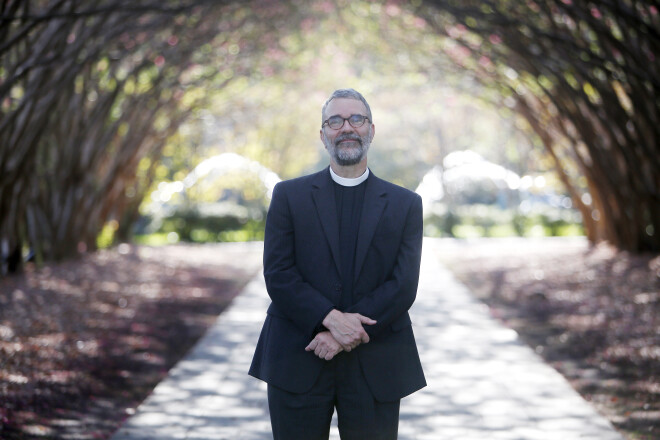What Are We Doing Sunday Morning?

We understand things by comparison: what is something similar to? So it is with corporate worship, which is really not exactly like anything we do, and requires being thought about. What it ought not to be like is paying for entertainment, and we would lose at that game anyway! What it is most like is the fiesta, the celebratory gathering of relatives and friends because of something joyful to mark. If this is right, then worship doesn’t do anything, any more than a birthday party or a revel after a sports win does.
But there is a second setting in life to which we can compare our worship, one that probably comes less readily to mind. It is also like giving testimony in a trial, or maybe talking to a reporter, or even voting. We attest in public to what we think is right and what is true. We are saying that something is so, and we are thereby willing to bear whatever consequence there might be. We see this particularly in the recitation of the Creed at the Eucharist, and likewise of the baptismal covenant that includes the Apostles’ Creed in Baptism. We are making truth-claims together, even though we may argue over exactly how to understand this clause or that, or may be growing into a fuller understanding of a claim - still this is essentially different from saying them out of rote, or antiquarianism, or “with our fingers crossed.”
In the ancient Church it was said “lex orandi, lex credendi,” or “the law of praying is the law of believing.” It was originally used so as to infer our theology of the Holy Spirit, which was being debated, by the way Christians were accustomed to speak of the Spirit. This has been a popular saying among theologians in the last generation. Sometimes it was a way of saying that our believing ought to be affected by our experience of praying, but it equally means that our praying must be guided by the truths we confess. And, of course the adage only makes sense if there is a stable liturgy, over time, which reflects the prior Biblical witness.
When I, the youngest, was little, I invented a card game called “Blank Off,” with rules only I knew, so that when my older siblings seemed to be prevailing, I could shout “blank off” and carry the day. I think that if we rewrite our prayers frequently to conform to our latest notions, it has the feel of “Blank Off,” and it nullifies the value of a guide like “lex orandi…”
Where am I going with all this? Worship is also witnessing to the world, and that to which we witness does not come from within us. And while we’re at it, notice how the strong claims about Jesus Christ, and the traditional triune name, and the forgiveness of our sins, are inherited and ecumenical truth claims to which we have sworn. This understanding is a vital part of what it means to share in membership in the “one, holy, catholic, and apostolic Church,” which by its very definition is not something we can make up. This inheritance, and the long line of saints and martyrs of which we are thereby a part, is a great comfort in our own walks as disciples.
Peace,
+GRS



